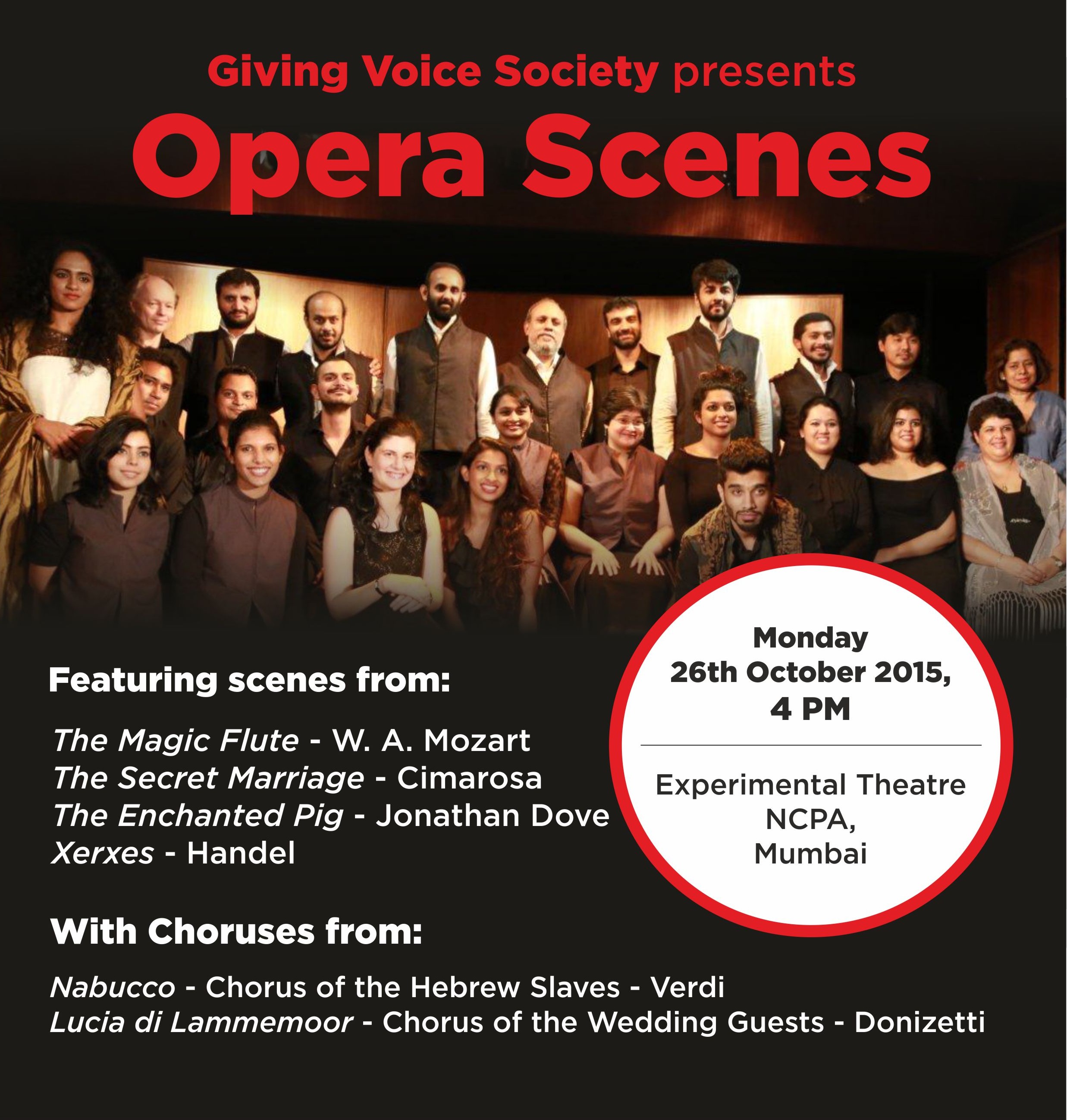Bombay has an earnest but limited audience for Western classical music – unless the best known ambassador for it comes to the city. When Zubin Mehta stages here, he has a “bass” which is wider than the familiar, oft-seen music lovers and the audience “trebles” in numbers. October 26th, 2015 was one such day. The intimate ambience of the Experimental Theatre at the National Centre for the Performing Arts was a perfect setting for Opera Scenes by the Giving Voice Society (GVS) – the initiative started by Patricia Rosario OBE and her pianist husband Mark Troop. Patricia’s passion is vocal classical music and the couple arrives in Bombay two-three times a year to help enhance existing technique, source talent and impart their enthusiasm to anyone who cares, as they do.
That evening pupils of GVS who have been with the duo for some or all of five years that they have been present in India, were show-cased. Scenes from operas of George Frederic Handel’s Xerxes; Wolfgang Mozart’s Magic Flute; Jonathan Dove’s The Enchanted Pig and Domenico Cimarosa’s The Secret Marriage were enacted with finesse and precision. Most of the soloists are students of Patricia at GVS in Mumbai except one. This was one more occasion for them to enjoy staging what they are trained for. Some also joined the Trinity teacher from the Royal College of Music in London.
Two well-known choruses were chosen for 15 singers – the chorus of the Wedding Guests from Gaetano Donizetti’s Lucia di Lammermoor which saw the nonexistent curtain rise in this modern theatre and half way down the evening the chorus of the Hebrew Slaves from Giuseppe Verdi’s Nabucco. The balance between the four voice types was perfect with no part overriding another. The swells were parallel, as were the troughs. A feat considering some singers flowed into voices which are not their tessitura but filled the vacuum of limited numbers. Hardships endured by Indian singers are not even a consideration for more fortunate students of music in most parts of the globe. Almost all western classical singers in India work for different livelihoods to make a living. It is only the love of this genre of art that makes them musicians by night, after six-eight hours of office duty. Some performers came from Delhi and Goa – managing their own travel, boarding and lodging – unheard of in any other country.
A peek behind the scenes helps identify other musiciens passionés who help train and rehearse for the final day. Minaish and Edward, trained by Patricia, train voices; Nadine puts all the singers through a drill of correct notes, timing and pitch. Rehaan guides the stage direction with a firm hand and Arghya throws light on it all. Stalwart Mark patiently and good humouredly puts music and musicians in the pink of it. Patricia juggles it all with two hands – the several other hands being invisible, unlike Indian Goddesses.
The evening came to an end at the Experimental, only to begin later the same evening in another hall where Zubin’s orchestra performed – the epitome of what is called being a music professional. The maestro has undoubtedly given India a voice on the international music arena.




